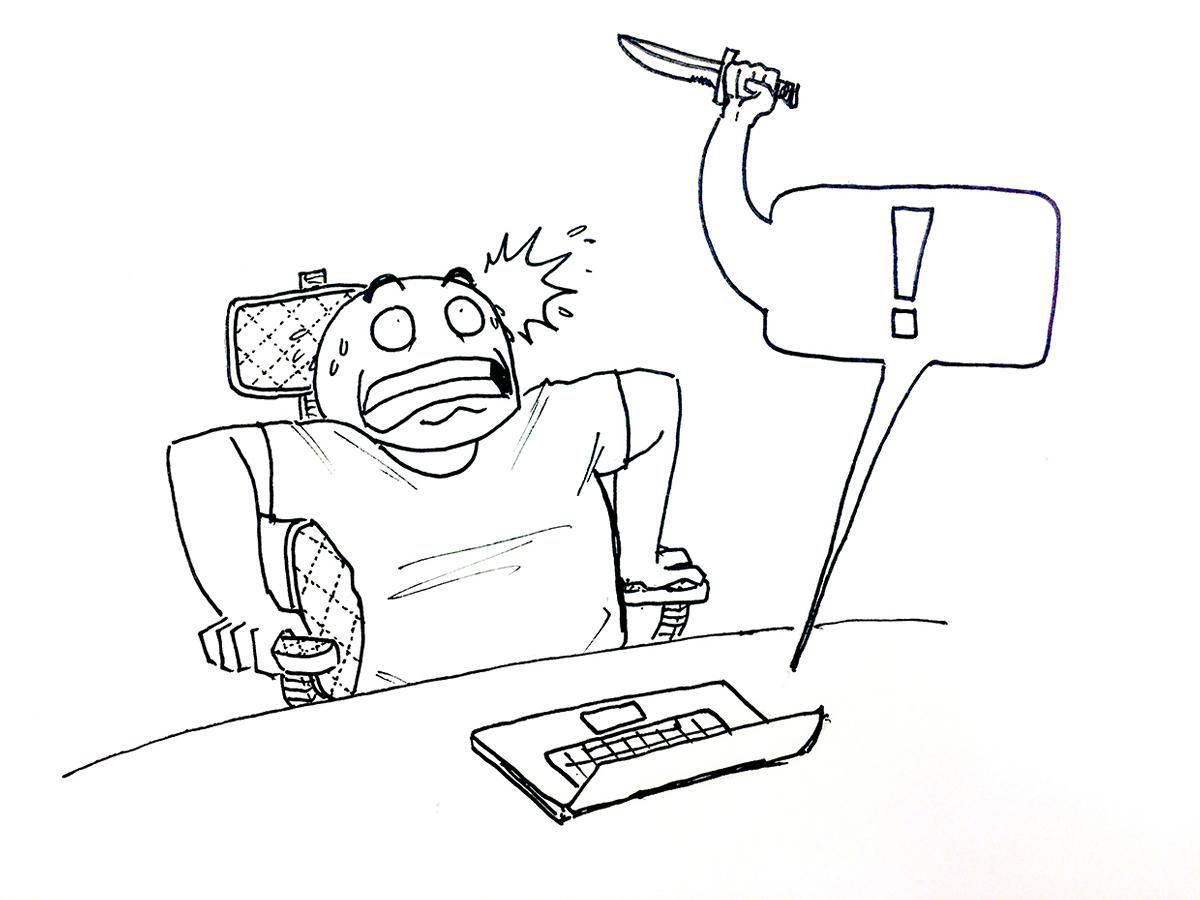
“This is without a doubt the dumbest article I've ever read. The purpose of driving a truck is not to dominate the road, or endanger the lives of the other drivers (as you seem to believe). Speeding, flattening other cars, and being able to “broadside" whatever gets in your way and "bounce away" mostly intact; are very nice examples of being a huge prick. In fact the sensations you describe feeling while driving the truck could likely be described as sociopathic. It's nice to finally read an opinion piece advocating total disregard of the value of human life and reckless driving with no respect for the safety of others. In closing I pray to God that myself or those I love never have to share the road with you, and I hope you are never able to drive a truck again.”
Someone who called themselves “Poon Tang” had this to say about an article I wrote, “Why we cannot all drive death machines.” Honestly, it devastated my confidence as a writer, hurt my heart, and made me consider quitting my job. Even now, as I re-read the article I think my sarcasm comes across clearly. I hear my obvious playfulness and dry humor scream through. Yes, I talk about running into other cars, but I do not actually intend to do it.
But this comment, added to the handful of inappropriate, biting or discouraging comments I receive each week, has started me thinking. What does the person who called me a huge prick and a sociopath hope to accomplish? Perhaps if they make me feel badly enough about myself I will apologize to all truck drivers everywhere and stop all my traffic shenanigans.
THE FINE LINE BETWEEN FEEDBACK AND CRUELTY
Online comments are one thing, but berating myself or my authors as we go about our lives around campus is harassment. Again, we delight in your feedback given in the appropriate way and at the appropriate time. We have a comment feed and an email on each of our articles for a reason; use those to get in contact with us.
I genuinely enjoy responding to thoughtful comments and engaging with the larger community about complex and often painful issues. In fact, my writing team and I spend seemingly countless hours working on our arguments and carefully picking words to make our pieces honest, productive and fair. The fact that you disagree with what I or one of my staff has written excites me. Maybe I am wrong, and if so this presents an opportunity for me to grow. I have blind spots that require a community to help me see.
Because we spend so much time crafting our articles, cruel or sloppy comments feel like my staff and I are being spit on. Often, my writers and I model vulnerability and honest — though sometimes misguided —truth searching. To be publically ridiculed, not respectfully challenged on an idea, is excruciating. Sure, people have strong feelings about the topics we speak about and yes we could grow a thicker skin, but I do not believe we need to do the adjusting here.
It is the cruel commenters who need to change.
If, which I believe to be the case, our campus really wants intentional conversation about uncomfortable truths, we have to be willing to be kind, receptive conversation partners. We, the writers, can only be spit on and slapped for so long before we lose our courage. Kind readers, we fragile humans need your care, not your thoughtlessness. So please, continue reading our work and we earnestly hope for your interaction with it.







